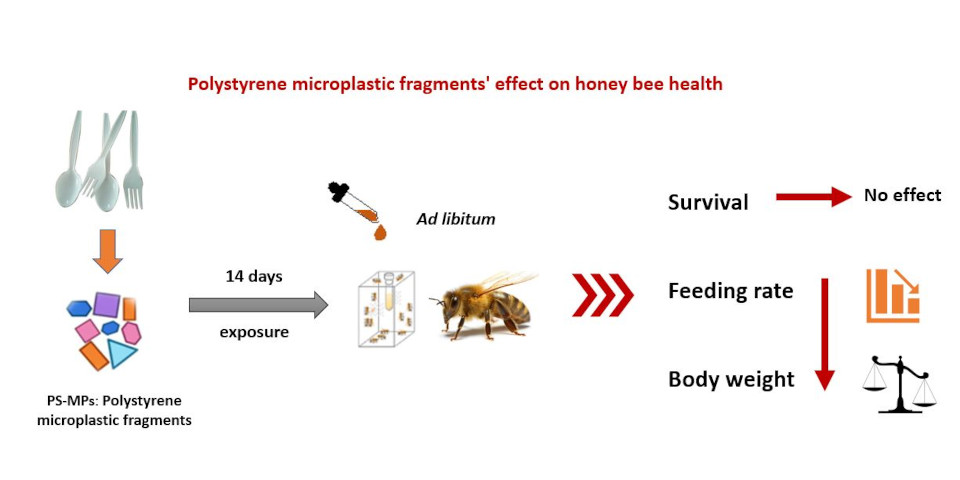Microplastics (MPs), in the form of fragments and fibers, were recently found in honey samples collected in Ecuador as well as in honey bees collected from Denmark and China. However, little is known about how MPs impact bee health. To fill this knowledge gap, we investigated the potential toxicity of irregularly shaped polystyrene (PS)-MP fragments on honey bee health. In the first experiment of its kind with honey bees, we chronically exposed bees with a well-established gut microbiome to small (27 ± 17 µm) or large (93 ± 25 µm) PS-MP fragments at varying concentrations (1, 10, 100 µg mL−1) for 14 days. Bee mortality, food consumption, and body weight were all studied. We found that chronic exposure to PS-MP fragments has no effect on honey bee survival, but reduced the feeding rate and body weight, particularly at 10 µg PS-MP fragments per mL, which may have long-term consequences for honey bee health. The findings of this study could assist in the risk assessment of MPs on pollinator health.
2431 Members
127 Countries!
127 Countries!










